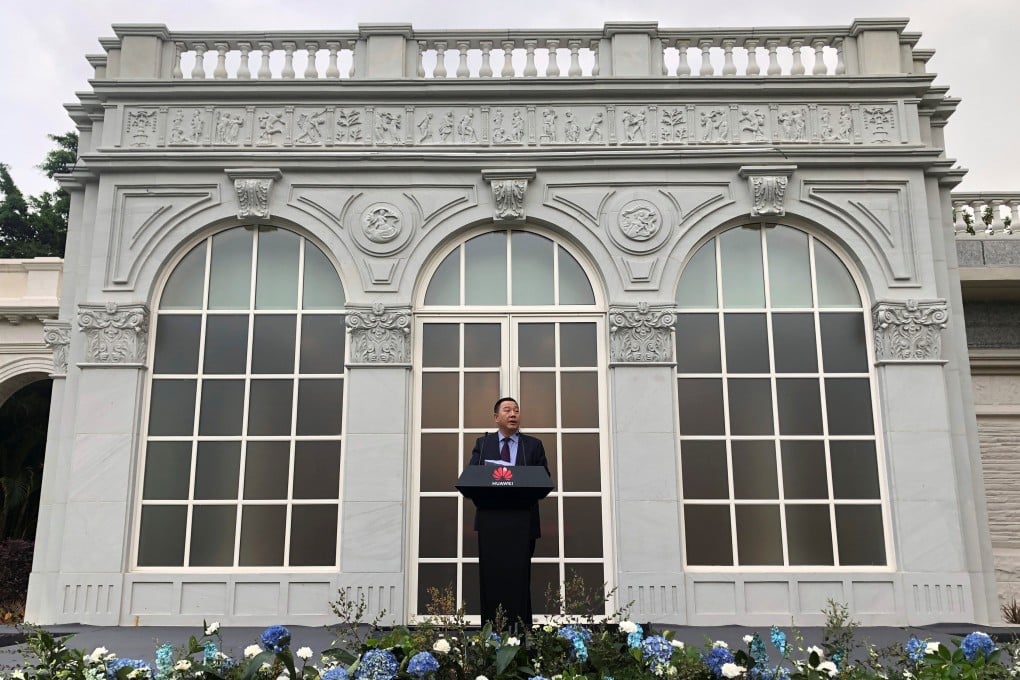Advertisement
US-China tech war: Huawei pushes licensing of 5G mobile technology amid struggles with Washington’s trade sanctions
- Telecommunications giant Huawei ‘will not seek a royalty rate higher than US$2.50’ per 5G smartphone
- The company’s revenue from patent licensing between 2019 and 2021 was estimated to be ‘about US$1.2 billion to US$1.3 billion’
Reading Time:2 minutes
Why you can trust SCMP
1

Huawei Technologies Co on Tuesday revealed the royalty rate for licensing its 5G mobile technology for the first time, days after a US government regulator designated the telecommunications giant and four other Chinese companies “a threat to national security”.
The 5G licensing push was announced by Jason Ding, the head of intellectual property at Huawei, in a speech on Tuesday at an innovation forum in Shenzhen, where the company introduced its latest intellectual property (IP) white paper.
“We believe licensing should balance return on investment and cost pressures of implementation in the industry,” Ding said. “For every phone that complies with 5G standards, we will not seek a royalty rate higher than US$2.5 per unit.”
Huawei hopes that the rate “will give implementers of 5G technology a clear number they can rely on for cost estimation and investment decisions”, he said. “Our goal is to promote broader adoption of 5G across all industries.”
The company, which was put on Washington’s trade blacklist in 2019, has been the largest technical contributor to global 5G standards, according to Ding. He said the company’s revenue from patent licensing between 2019 and 2021 was estimated to be “about US$1.2 billion to US$1.3 billion”.
The announcement comes less than two years since Huawei founder and chief executive Ren Zhengfei offered to license the company’s 5G technology to an American company to create a powerful new competitor that could develop its own large-scale market. There were no takers in the US, however, because the offer did not address Washington’s long-standing security concerns about Huawei, which the company has repeatedly denied.
Advertisement